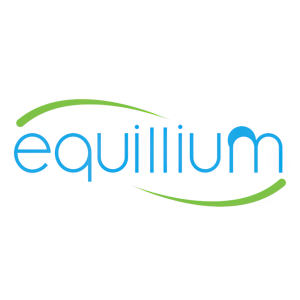Equillium Announces Data Suggesting Soluble ALCAM as a Potential Biomarker of Disease Severity in Lupus Nephritis at ACR Convergence 2022
“The findings from this research represent an important step in the clinical development of itolizumab, which targets the CD6-ALCAM pathway and provides further support for its potential to be a meaningful therapy for lupus nephritis patients,” said
Title: Urine ALCAM is a Strong Predictor of Lupus Nephritis
First Author:
Session Title: SLE – Diagnosis, Manifestations, and Outcomes Poster II: Manifestations
Poster Number: 1478
Key Highlights, Summary and Conclusions from Presentation:
- Research demonstrated that urine ALCAM is a biomarker of disease severity in LN that could be indicative of disease progression and/or response to treatment
- Urine ALCAM correlates with currently accepted measures of LN, including UPCR (urine protein-to-creatinine ratio) and renal SLEDAI (systemic lupus erythematosus disease activity index)
- Data suggests that urine ALCAM reflects changes in LN and could potentially be used in combination with other measures to inform clinicians of a patient’s disease early on, without invasive measures
About Systemic Lupus Erythematosus (SLE) / Lupus Nephritis (LN)
Systemic lupus erythematosus is an autoimmune disease in which the immune system attacks its own tissues, causing widespread inflammation and tissue damage in the affected organs. It can affect the joints, skin, brain, lungs, kidneys, and blood vessels. Lupus nephritis is a serious complication of SLE, occurring in approximately
About Itolizumab
Itolizumab is a clinical-stage, first-in-class anti-CD6 monoclonal antibody that selectively targets the CD6-ALCAM pathway. This pathway plays a central role in modulating the activity and trafficking of T cells that drive a number of immuno-inflammatory diseases.
About
For more information, visit www.equilliumbio.com.
Forward Looking Statements
Statements contained in this press release regarding matters that are not historical facts are "forward-looking statements" within the meaning of the Private Securities Litigation Reform Act of 1995. Forward-looking statements may be identified by the use of words such as "anticipate", "believe", “could”, “continue”, "expect", "estimate", “may”, "plan", "outlook", “future” and "project" and other similar expressions that predict or indicate future events or trends or that are not statements of historical matters. Because such statements are subject to risks and uncertainties, many of which are outside of the Company’s control, actual results may differ materially from those expressed or implied by such forward-looking statements. Such statements include but are not limited to statements regarding the potential for any of Equillium’s ongoing or planned clinical studies to show safety or efficacy, and Equillium’s plans and expected timing for developing its product candidates and potential benefits of its product candidates. Risks that contribute to the uncertain nature of the forward-looking statements include: uncertainties related to the abilities of the leadership team to perform as expected; Equillium’s ability to execute its plans and strategies; risks related to performing clinical studies; the risk that interim results of a clinical study do not necessarily predict final results and that one or more of the clinical outcomes may materially change as patient enrollment continues, following more comprehensive reviews of the data, and as more patient data become available; potential delays in the commencement, enrollment and completion of clinical studies and the reporting of data therefrom; the risk that studies will not be completed as planned; Equillium’s plans and product development, including the initiation and completion of clinical studies and the reporting of data therefrom; whether the results from clinical studies will validate and support the safety and efficacy of Equillium’s product candidates; changes in the competitive landscape; uncertainties related to Equillium’s capital requirements; and having to use cash in ways or on timing other than expected and the impact of market volatility on cash reserves. These and other risks and uncertainties are described more fully under the caption "Risk Factors" and elsewhere in
View source version on businesswire.com: https://www.businesswire.com/news/home/20221114005446/en/
Investor Contact
Vice President, Investor Relations & Corporate Communications
619-302-4431
ir@equilliumbio.com
Source:







